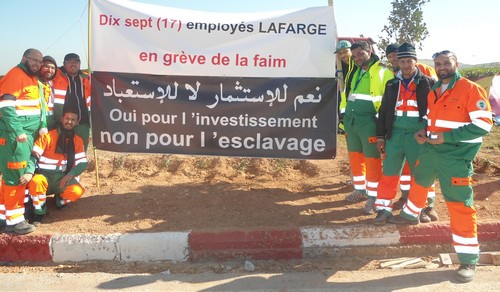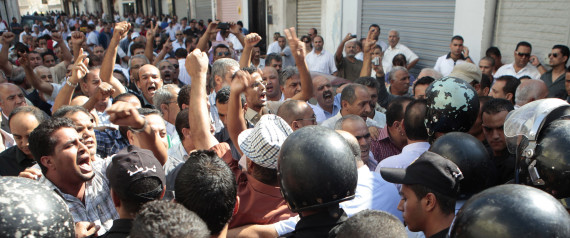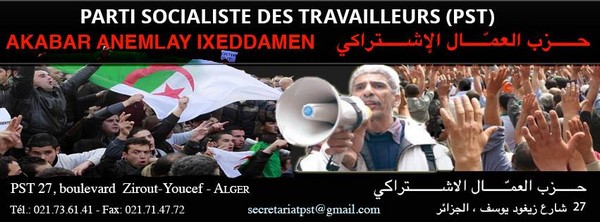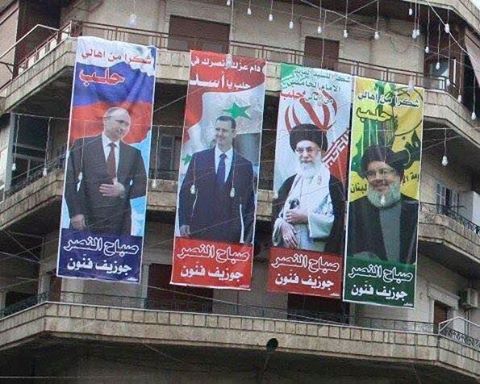
Many of the people who first rose against the Assad regime in Syria have been sidelined, leaving the Syrian people with limited choices, neither of which they want: either a Western imposed regime, composed of sundry Syrians who work for the western intelligence agencies, or the Assad regime.
Others, like veteran journalist Seymour Hersh, described the uprising in overly-simplistic terms as a near conspiracy to “destabilize Syria” that was planned at the time of George W. Bush’s presidency and continued into President Barack Obama’s term.
Political figures like former British Member of Parliament, George Galloway, have supported anti-war movements like Stop the War Coalition, but have also defended Bashar Al-Assad’s criminal regime on many occasions. In 2013, for instance, Galloway declared that Assad is “quite a man” because “he opposes Israel, Britain, America and Qatar.“
These are only a sampling of the many left-wing figures who analyze the Syrian revolutionary process using a “top-down” approach. They characterize the popular Syrian uprising in Manichean terms as an opposition between two camps: the Western states, the Gulf monarchies, and Turkey (the “aggressors”) on one side, and Iran, Russia, and Hezbollah (the “resistance”) on the other. In so doing, they ignore the popular political and socio-economic dynamics at the grassroots level. Moreover, they often focus disproportionately on the dangers of ISIS while ignoring the role the Assad regime played in its rise. These discrepancies must be addressed within leftist circles and movements.
Authoritarianism and Popular Resistance
Citing the expansion of ISIS and other extremist forces, some sections of the left claim Syria is no longer experiencing a revolution, but, rather, is in the grips of a war of conspiratorial proportions. Because of this, they argue, we must “choose a camp,” in order to find a concrete solution to the conflict. In effect, this means we must throw our support behind Assad and his allied Iranian and Russian forces. Tareq Ali declared, for example, at a rally in 2015 that “If you want to fight ISIS, you should be going in and fighting alongside Russia and alongside Assad.”
Sadly, baseless discourse like this became particularly prominent after the Paris attack in November 2015, when ISIS affiliates killed nearly 140 Parisians in an act of terrorism. After the attack, many in the West began advocating for a “global war against ISIS.” Those on the left and right alike argued for the need to collaborate with the Assad regime, or at least seek a solution in which the Assad dynasty remains in control of the country.
Those, like myself, who oppose this outlook are charged with being idealistic. Our critics tell us we must take “more realistic” approaches toward Syria, in order to save lives.
What these individuals fail to appreciate, however, is that it is not enough to destroy ISIS. Brute military force alone only ensures that other militant groups will take its place, as al-Qaida in Iraq demonstrates. Real solutions to the crisis in Syria must address the socio-economic and political conditions that have enabled the growth of ISIS and other extremist organizations.
We have to understand that ISIS’s expansion is a fundamental element of the counter-revolution in the Middle East that emerged as the result of authoritarian regimes crushing popular movements linked to the 2011 Arab Spring. The interventions of regional and international states have contributed to ISIS’s development as well. Finally, neo-liberal policies that have impoverished the popular class, together with the repression of democratic and trade union forces, have been key in helping ISIS and Islamic fundamentalist forces grow.
The left must understand that only by ridding the region of the conditions that allowed ISIS and other Islamic fundamentalist groups to develop can we resolve the crisis. At the same time, empowering those on the ground who are fighting to overthrow authoritarian regime and face reactionary groups is part and parcel of this approach.
Complex Dynamics
The revolutionaries in Syria who are struggling for freedom are not unlike the revolutionaries in Tunisia, Bahrain, Libya, Egypt, and elsewhere, who oppose both the authoritarian regimes that brutalize them and the fundamentalists who reject meaningful notions of freedom and liberty.
This popular resistance has been the most neglected aspect of the Syrian uprising. Since the revolution began, Syria has witnessed remarkable levels of self-organization—more than any other country in the region faced with similar circumstances.
It is true that the uprising’s militarization has impacted this self-organization. Indeed, the war’s evolution has stifled the space for mass demonstrations and civic engagement, which was common during the uprising’s early years. Remnants of the original revolution still exist, however, in the form of democratic and progressive movements, which have consistently opposed all counter-revolutionary elements, including the Assad regime and extremist forces. Far from being dead, these popular forces made themselves and their democratic aspirations known in February 2016. Following the partial cessation of Russian and regime airstrikes, hundreds of civil demonstrations occurred throughout liberated areas of Syria. The chants and flags of extremist forces were notably absent from these protests.
Among the civic initiatives in Syria, citizen-driven local councils, elected or established on consensus, exist in some regions and provide services to the local population. It is not a coincidence that the free regions of Aleppo and Douma, both run by local councils, are among the most brutalized targets of regime and Russian bombing. That these areas represent democratic alternatives, apart from the regime and fundamentalist movements, is something Assad and his allies fear.
Local councils are not the only civic organizations that have been established during the conflict. The Syrian Civil Defense, commonly known as the White Helmets, works to save victims of airstrikes and deliver public services to nearly 7 million people. Other popular organizations have also undertaken a range of activities and campaigns around education, health, human rights, and empowering women, to name a few. These include Women Now For Development, Keshk, The Day After Tomorrow, the Fraternity Center, and Raqqa Is Being Slaughtered Silently, among others.
There has also been a surge of free and democratic newspapers and radio stations in the country, especially in liberated areas. Examples of these include Arta FM, Syrian Media Action Revolution Team (SMART), ANA Press, Enab Baladi, and Souriatna.
It is imperative for leftists to appreciate these realities, and separate the aspirations of besieged Syrians from those of international and imperialist actors. Approaching Syria from a “bottom-up” rather than “top-down” perspective can help with this.
Imperialism at Work
It is important to remember that, even though conflicting interests exist between international and regional powers that are intervening in Syria, none of these actors care about the uprising or the revolutionaries. Instead, they have attempted to undermine the popular movement against Assad and successfully worked to strengthen sectarian and ethnic tensions in the country. These intervening forces have, for example, helped stabilize the Assad regime in order to oppose Kurdish autonomy (in Turkey’s case) and to defeat extremist groups such as ISIS (in the case of the United States).
The intervening powers are united in their opposition to popular struggle. They seek to impose the status quo at the expense of the interests of the working and popular classes. This is precisely why viewing the Syrian revolution only through the lens of imperialist competition and geo-political dynamics will not suffice. This lens inherently obscures the political and socio-economic frustrations endured by the Syrian population that sparked the uprising.
The Enemy at Home
Some sections of the left and anti-war movements, especially in the UK and the United States, have refused to act in solidarity with the Syrian uprising under the pretext that“the main enemy is at home.” In other words, it is more important to defeat the imperialists and bourgeoisie in our own societies, even if that means implicitly supporting the Assad regime or Russian state.
Among these sections of the left, communist thinker Karl Liebknecht is frequently cited. Liebknecht is famous for his 1915 declaration that “the enemy is at home,” a statement made in condemnation of imperialist aggression against Russia led by his native Austria–Germany. In quoting Liebknecht, many have decontextualized his views. From his perspective, fighting against the enemy at home did not mean ignoring foreign regimes repressing their own people or failing to show solidarity with the oppressed. Indeed, Liebknecht believed we must oppose our own ruling class’s push for war by “cooperating with the proletariat of other countries whose struggle is against their own imperialists.”
Among many Western leftists, there has been neither cooperation with the Syrian people nor collaboration with like-minded anti-war movements. They also have failed to oppose the policies of their own bourgeois states in crushing the revolution in Syria.
The left must do better. Solidarity with the international proletariat means supporting Syrian revolutionaries against various international and regional imperialists forces, as well as the Assad regime, all of which are trying to put an end to a popular revolution for freedom and dignity. No leftist organizations or anti-war movements today can ignore the necessity of supporting people in struggle, while opposing all foreign interventions (international and regional), especially from our own governments.
Re-Orienting the Left
The role of progressives and leftists today is not, contrary to suggestions from figures like Ali and Higgins, to choose between two imperialist or “sub-imperialist” forces that compete for political gains and the exploitation of resources and peoples. It is, instead, to support the popular struggle, which very obviously exists in Syria. To do otherwise not only undermines that struggle, but also ignores the fact that progressive forces must always support the interests of the working and popular classes. To choose one kind of imperialism or authoritarianism over another is to guarantee the stability of the capitalist system and the exploitation and oppression of peoples.
This is why, when activists demonstrate in front of Russian embassies throughout the world to demand an end to Russian bombing of the Syrian people, we should not problematize or refer to their actions as “fuelling anti-Russian sentiment.” As argued by Alex Kokcharov, principal Russia analyst at the research center IHS Country Risk, “Russia’s priority is to provide military support to the Assad government and, most likely, transform the Syrian civil war from a multi-party conflict into a binary one between the Syrian government and jihadist groups like the Islamic State.” This means, the vast majority of Russia’s air strikes do not target ISIS at all.
In Solidarity
As leftists, our support must go to the revolutionary people struggling for freedom and emancipation. Only through their own collective action can the Syrian people achieve their goals. This concept, which is at the heart of revolutionary politics, faces profound skepticism from some sections of the left. This should not prevent us, however, from building our solidarity on this basis.
As Liebknecht said: “Ally yourselves to the international class struggle against the conspiracies of secret diplomacy, against imperialism, against war, for peace within the socialist spirit.” We can exclude none of these elements from our struggle to build a progressive leftist platform on the Syrian conflict.







